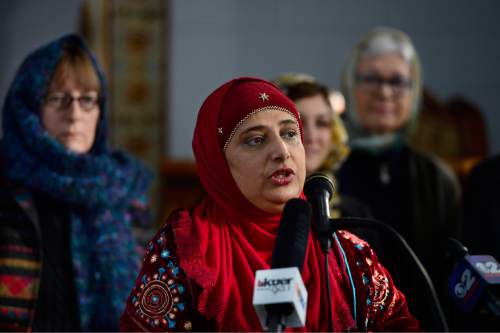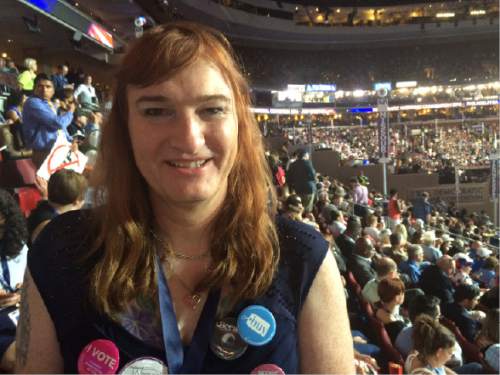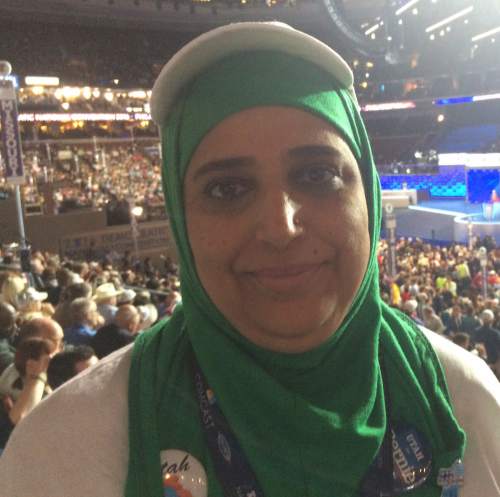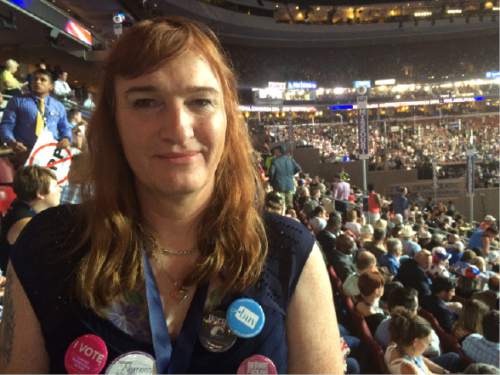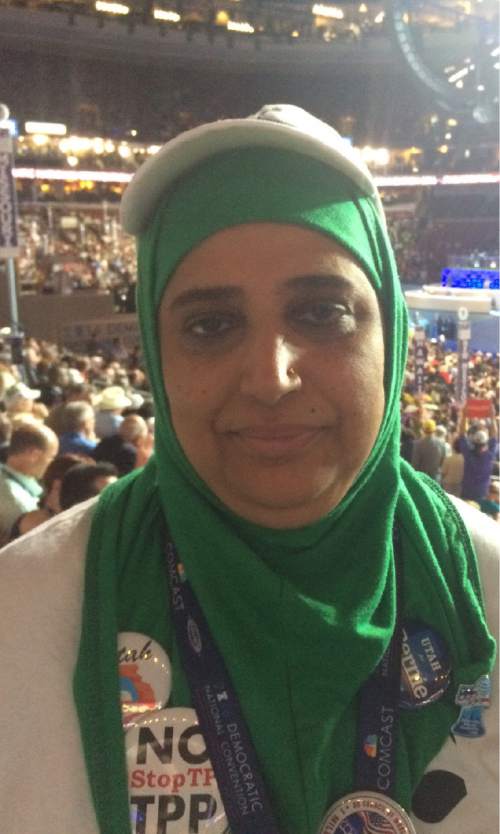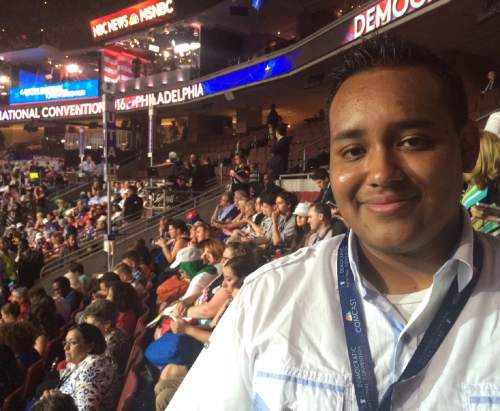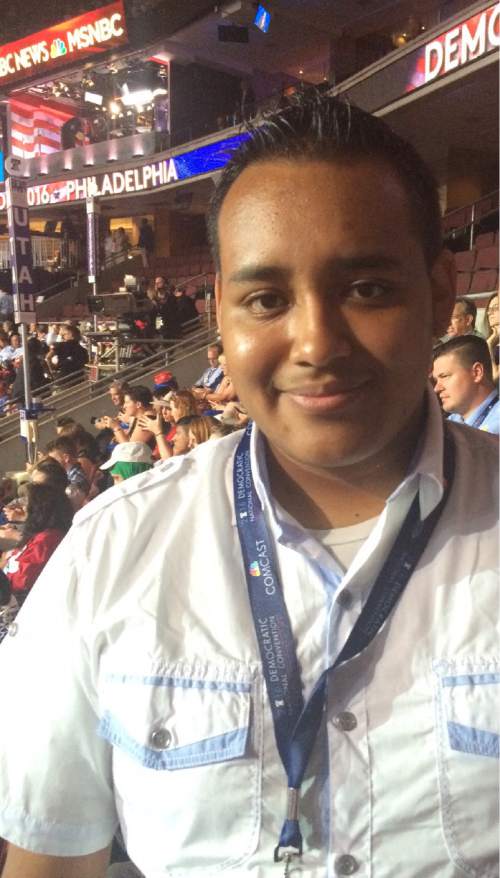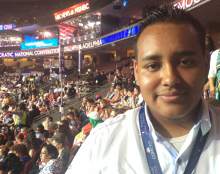This is an archived article that was published on sltrib.com in 2016, and information in the article may be outdated. It is provided only for personal research purposes and may not be reprinted.
Philadelphia • For some of Utah's delegates, the chance to represent the state at the Democratic National Convention was also a chance to represent their people. They were driven as much by a desire to reject positions held by Donald Trump and the Republicans as they were to champion either Hillary Clinton, the presumptive nominee, or Bernie Sanders.
Among the Utahns are a Muslim woman concerned by Trump's plan to temporarily ban members of her faith from entering the United States, a transgender woman concerned over access to health care and a Hispanic American hoping that one day his undocumented mother can become a citizen.
Unlike the Republican National Convention last week, the Democrats break for caucus groups each day, giving these delegates a chance to mingle and meet with counterparts from other states. The Democratic delegates are also far more likely to be racial or religious minorities or gay.
In Utah's delegation, 10 of the 37 are members of the LGBT community and 12 are minorities. The state's 40 member Republican delegation included four minorities.
Noor Ul-hasan attended the 2012 Democratic nomination in Charlotte, N.C., and figured she'd sit this one out so other Utah Democrats could have the experience. But then she heard Trump argue that because of terrorist attacks, the nation should temporarily block Muslims from coming to the United States for any reason. She felt compelled to run as a delegate and friends in the party encouraged her to do so.
"I'm just one voice from Utah who is Muslim, but I represent a lot of Muslims in my state," she said. "I need to represent."
She believes Clinton didn't do enough to support Palestine as Secretary of State, which is one of the reasons why Ul-hasan is a Sanders delegate, and yet, she'll focus her attention post-convention on fighting to elect the Democrat in November.
"I'm not pro-Hillary, I'm anti-Trump," she said.
Like Ul-hasan, Sophia Hawes-Tingey wanted to be seen in Philadelphia as an example of the party's diversity.
"I knew that Utah, considered one of the reddest states in the union, had to send a transgender delegate," she said. Hawes-Tingey, a Sanders supporter, ran for the state Legislature in 2014, and said she's watched the party become more inclusive, leading to Democrats selecting Misty Snow, a transgender woman, as the state's U.S. Senate candidate this year.
Hawes-Tingey said she ran to "give hope to the many people who are under ceaseless attack because of who they are and who they love."
She's one of 28 transgender delegates, the largest such contingent to attend a convention.
Kevin Perez ran for a delegate slot with his mother on his mind. She left Mexico and came to the United States 27 years ago, before he and his younger brother were born.
"My mom is one of the 11.5 million people who are here undocumented, who came here to provide a better future, for me and my younger brother," Perez said. "She is the person I probably admire the most."
Trump has made a tough immigration policy the centerpiece of his campaign, including building a border wall and deporting immigrants here illegally.
Clinton, and her new running mate, Virginia Sen. Tim Kaine, said they would pass immigration reform in their first 100 days, if elected.
Perez, a Sanders delegate, said he considers himself a representative of Utah's Hispanics and someone who offers a counterpoint to Trump and conservatives.
He said: "I thought it was my duty to represent."
Twitter: @mattcanham


